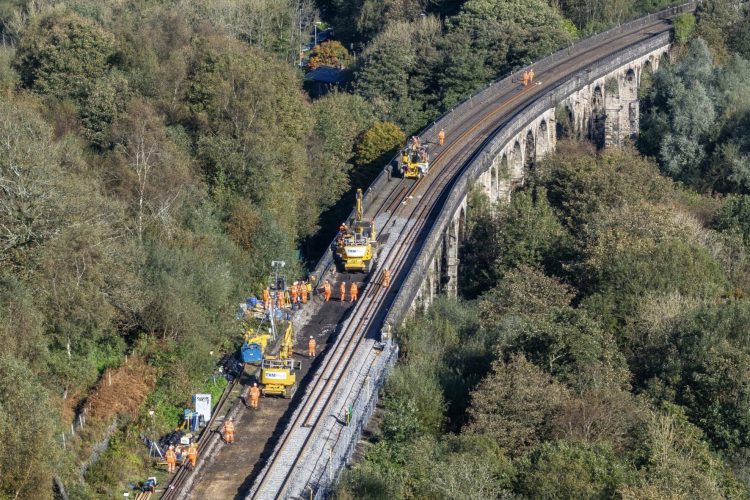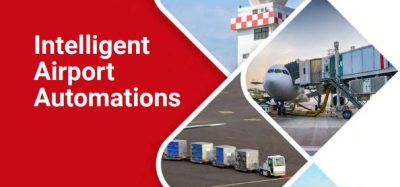Worldline: A ‘customer first’ approach can get British rail back on track
Posted: 30 April 2024 | Martin Howell | No comments yet
Worldline Director of Transport Markets in UK and Ireland Martin Howell explains how the rail industry needs to embrace a ‘customer first’ approach.


It’s been a challenging few years for the UK rail industry. Fare revenues still haven’t reached pre-Covid levels. Year-on-year hikes in rail fares continue to attract criticism.
Business commuting has diminished, reflecting the sustained popularity of remote working arrangements offered by many employers.
But perhaps the most unexpected challenge faced by the rail industry is a shift in consumer behaviour. In the age of on-demand services, people value convenience, speed, ease-of-use, and competitive pricing. By contrast, the complexity of rail fare structures continues to perplex customers, many of whom believe that accessing the best prices either requires insider knowledge or assistance from ticket office personnel.
As a result, rail operators need to rethink their services so that they’re aligned with customer expectations.
The legacy of privatisation
Rail Delivery Group (RDG) estimates that £240 million is lost through fare evasion across the whole of the country’s rail network. While it would be easy to claim this is due to deeper systemic issues stemming from the privatisation of our railways, that would mean overlooking what it has achieved.
Private sector involvement has led to significant investments in rolling stock and infrastructure, while also prompting the expansion of services and routes in some areas of the country, including the reopening of disused lines. What also cannot be ignored is the huge increase in passenger volumes, outstripping both population and economic growth.
However, while the initial aim of rail privatisation was to incentivise innovation through competition and private investment, the recent reality has been tempered by an actual lack of competition and the short duration of franchises. This has often discouraged long-term investments, as companies focused on recovering costs within brief operational windows.
So while rail privatisation has undoubtedly injected a welcome layer of innovation, it has also led to a fragmented industry characterised by siloed operations and inconsistent adoption of technology. This fragmentation hinders the effective deployment of proven technologies that could address issues like ticketless travel and improve operational efficiencies. In other words, the short-term focus we’ve seen to date has inadvertently held back advancements in the rail sector.
Change down the line?
So far, there have been some promising developments in 2024. An independent, integrated rail body proposed in the draft rail reform bill published back in February would represent a major step towards a more accountable and streamlined railway infrastructure and service operation.
More recently, the Labour Party’s proposal to nationalise rail services within five years of being in power underscores the potential for transformative change within the industry – especially where the customer experience is concerned.
Both of these developments present an opportunity to revitalise rail. While the impending UK general election suggests a delay in the draft bill’s enactment is likely, the legislative interlude does however allow time for stakeholders to consider the possibilities offered by advanced digital solutions in anticipation of future reforms.
The greater opportunity for change lies in renationalisation, especially when exploring the possibility of implementing a digital transformation that puts the customer first. Introducing integrated digital payment systems and user-friendly customer service platforms would make rail travel less fragmented, more accessible, and attractive to users of all ages and backgrounds.
The Government’s role
Both the draft bill and the renationalisation proposal demonstrate a commitment to reforming our railways – which is welcome news, as the success and sustainability of these initiatives require unwavering government support.
Long-term commitments and clear policies are essential to mitigate the risks that deter private investment and stifle innovation. Private investors are more likely to commit funds if there is a visible, long-term commitment on the Government’s part and a clear, strategic plan for the rail industry.
For these reasons, the Government must articulate its vision for potential national ownership and redefine the frameworks guiding passenger service contracts, moving away from previously adopted franchising models to something that encourages more flexibility and innovation.
Putting the customer first
From Worldline’s vantage point, the rail industry’s focus has drifted from its primary stakeholders: the passengers. Part of the issue lies in that choice of term, as ‘passengers’ implies passivity – the rail industry should be thinking of them as customers, who instead have choice and agency over how they travel.
To the casual observer, it may appear that the customer simply isn’t the priority for rail. For a long time, rail had the luxury of being an obligation rather than a choice, but that’s no longer the case. Whether it’s due to a pandemic, a cost-of-living crisis or a hike in rail fares, there are now a number of factors actively discouraging people from choosing to travel by train.
If rail is to become an attractive option like it once was, then it urgently needs to work differently, and deliver better technology-enabled and structural solutions that will return the sector to growth.
A ‘customer first’ approach is key to realigning the industry with its users’ needs and expectations. Simplifying and modernising legacy systems to make digital interactions the backbone of railway operations is no longer just a pipe dream – it is a necessary course of action. Such a transformation has the power to streamline processes, from ticket purchasing to customer service, ensuring a smoother, more satisfying experience for every customer.
The journey towards digital transformation
The rail sector faces significant challenges with the current complexity of ticketing systems. Customers often must navigate a labyrinth of fares and ticketing options without assurance of securing the best price. Simplifying this system to a trusted, single source for ticketing can ensure value and accessibility, aligning with customer expectations for straightforward transactions akin to those in other sectors.
Rail retailing should mirror the seamless experiences customers enjoy in areas such as retail and entertainment, but with added transparency. The success of Trainline, which handles 33% of all UK rail ticket sales, suggests there is a demand for a consolidated digital platform that enables customers to effortlessly manage their travel plans across all networks using mobile devices. This centralised approach is crucial, considering that by 2032 only 7% of all UK payments will be in cash, emphasising the shift towards digital solutions (although maintaining certain cash options remains essential for inclusive accessibility).
Moreover, the evolution of open banking and digital wallet systems represents a significant opportunity to enhance customer interactions, providing more streamlined services and enabling connections with corporate spending.
Addressing in-station service enhancements, particularly around accessibility and customer service, is also a key consideration. Current regulations, like the RDG Accreditation for devices, often hinder the integration of ticketing with enhanced customer services, which is an area ripe for innovation. By leveraging technology to empower station and train staff, support can be significantly enhanced for all passengers, especially those with specific accessibility needs.
For example, Worldline’s own commitment to transforming customer station experiences is demonstrated through initiatives such as the deployment of multifunctional ticket vending kiosks at a number of rail stations across the nation. These kiosks are designed to simplify the purchasing process, making it easier and more attractive for customers, thereby supporting broader efforts to enhance public perception of ongoing rail innovations.
Final stop
Rail is at the core of UK public transport and therefore, if we want to see it thrive, it must focus on meeting the needs of its customers, rather than challenging them to navigate a complex, unintuitive, and unfocused system.
The ideal railway is a connected ecosystem that simplifies both travel and ticketing for the customer. Making ticket buying simple, clear and straightforward via easy-to-use, attractive devices, would be a first step in the right direction. This vision calls for a central ‘guiding mind’ – a unified entity supported by both the government and a vibrant private sector that includes a robust marketing organisation and a dedicated data analytics body.
Rail privatisation led to a significant rise in ridership, highlighting the potential for further growth in the sector. The question now is whether rail nationalisation can also drive an increase in passenger numbers. This is achievable, provided that a nationalisation strategy prioritises customer satisfaction at its core.
It is encouraging that the initial ideas put forward by the draft rail reform bill and the rail renationalisation proposal are aligned with Worldline’s own vision of what a customer-centric rail service would look like. Collaborative efforts between the right partners can harness the vast quantities of data across the network, turning them into actionable insights that benefit customers, the industry, and the nation at large.
How soon all the above will become a reality depends a lot on what unfolds in Westminster later this year. We’ll be watching.
Click here to view a copy of Worldline’s ‘Customer First’ whitepaper.


More Like This
OFF THE RAILS: Worldline’s Martin Howell
“A call to arms”: how many women work in transport?
Q and A with Goldschmidt’s Peter Stjernfelt – Sales and Marketing Manager, Sweden
Related topics
Operational Performance, Passenger Experience/Satisfaction, Rail Fares/Ticket Pricing, Smart/Contactless Ticketing






